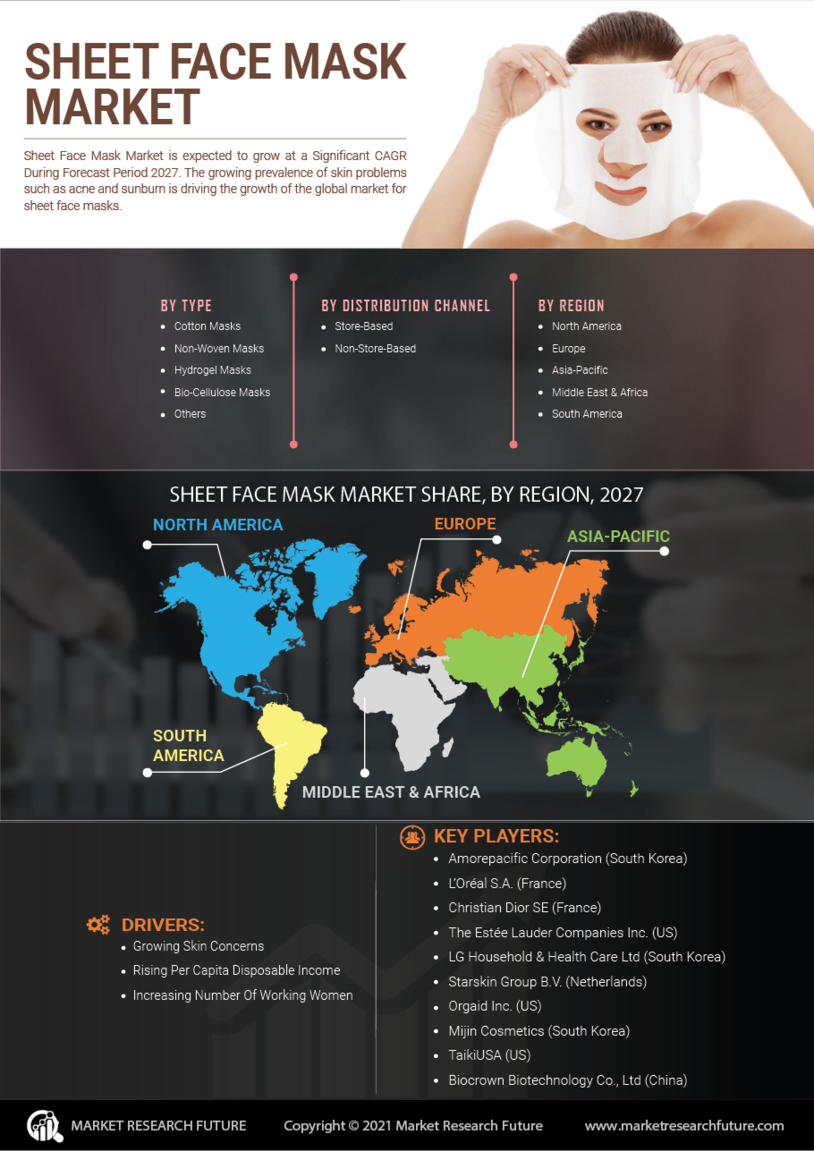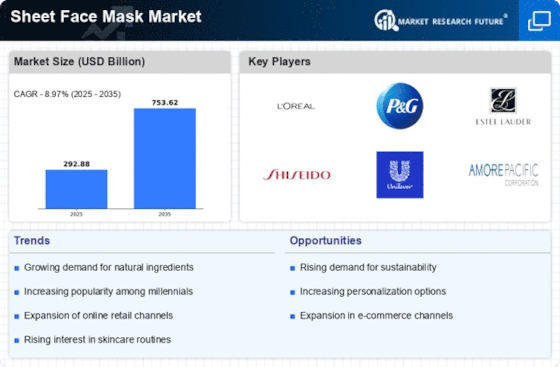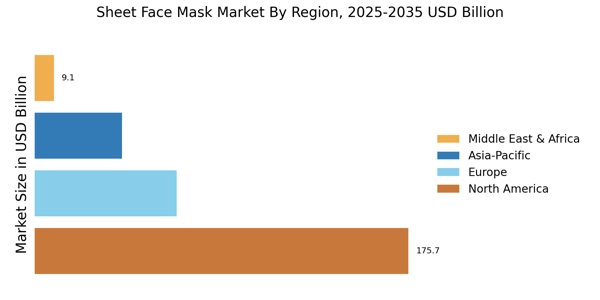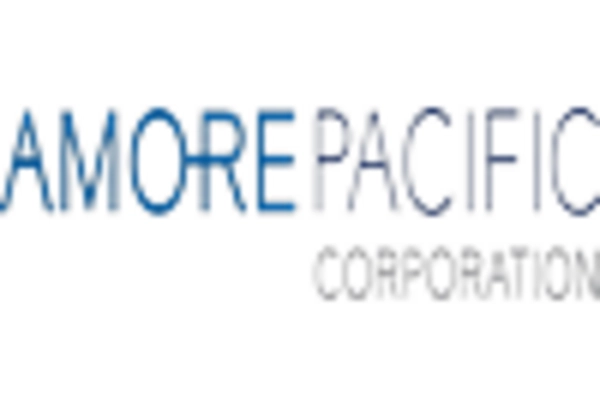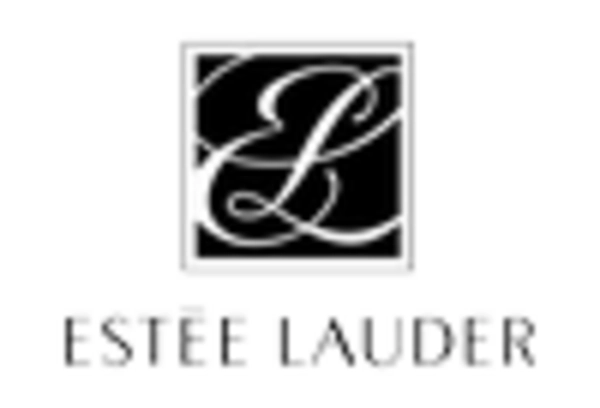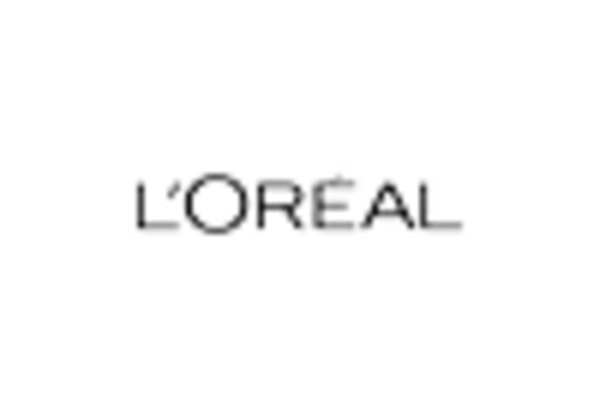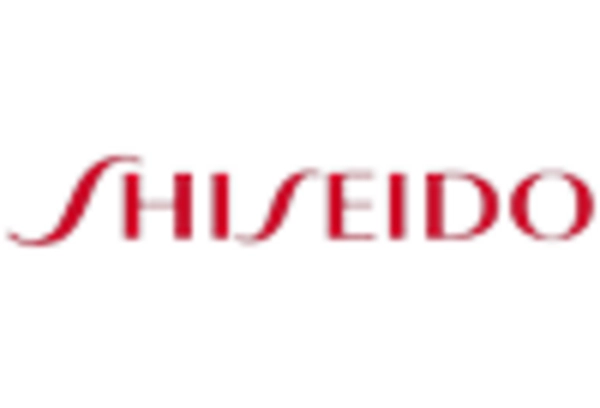Expansion of Distribution Channels
The expansion of distribution channels plays a crucial role in the growth of the Sheet Face Mask Market. The rise of e-commerce platforms has made it easier for consumers to access a wide variety of sheet masks from different brands. Additionally, traditional retail outlets are increasingly stocking these products, enhancing their availability. Recent statistics show that online sales of beauty products have surged, indicating a shift in consumer purchasing behavior. This trend suggests that the Sheet Face Mask Market may continue to grow as brands capitalize on diverse distribution strategies to reach a wider audience.
Rising Demand for Skincare Products
The increasing awareness regarding skincare routines among consumers appears to be a primary driver for the Sheet Face Mask Market. As individuals become more conscious of their skin health, the demand for effective skincare solutions rises. Reports indicate that the skincare market is projected to reach a valuation of approximately 200 billion dollars by 2026, with sheet masks being a popular choice due to their convenience and efficacy. This trend suggests that the Sheet Face Mask Market is likely to experience substantial growth as consumers seek products that offer hydration, nourishment, and targeted treatment for various skin concerns.
Increased Focus on Self-Care and Wellness
The growing emphasis on self-care and wellness is a significant driver for the Sheet Face Mask Market. As individuals prioritize mental and physical well-being, skincare routines are increasingly viewed as a form of self-care. The rise of wellness culture has led to a surge in demand for products that promote relaxation and rejuvenation. Market data suggests that the self-care market is expected to grow substantially, with sheet masks being a favored choice for consumers seeking quick and effective pampering solutions. This trend indicates that the Sheet Face Mask Market is likely to thrive as it aligns with the broader wellness movement.
Innovations in Formulation and Ingredients
Innovative formulations and the incorporation of unique ingredients are pivotal in driving the Sheet Face Mask Market. Brands are increasingly focusing on developing masks that feature natural and organic components, appealing to health-conscious consumers. The introduction of specialized masks targeting specific skin issues, such as anti-aging or brightening, enhances product differentiation. Market analysis reveals that the demand for natural skincare products is on the rise, with consumers willing to pay a premium for quality. This trend indicates that the Sheet Face Mask Market may continue to evolve as brands innovate to meet consumer expectations.
Influence of Social Media and Beauty Trends
The impact of social media on beauty trends significantly influences the Sheet Face Mask Market. Platforms such as Instagram and TikTok have become vital in shaping consumer preferences, with influencers often showcasing sheet masks as part of their skincare routines. This visibility not only drives awareness but also encourages trial among followers. Data indicates that beauty-related content on social media garners millions of views, suggesting a strong correlation between online engagement and product sales. Consequently, the Sheet Face Mask Market is likely to benefit from this trend as brands leverage social media marketing to reach a broader audience.
